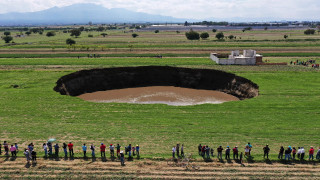
New Delhi: In a significant development, Italy has formally withdrawn from China's ambitious Belt and Road Initiative (BRI), dealing a considerable blow to President Xi Jinping's expansive infrastructure project. This decision marks a notable shift from four years ago when Italy stood as the sole G7 nation to join the BRI.
Italy's dissatisfaction with the BRI agreement came to a head as Prime Minister Giorgia Meloni conveyed the long-awaited decision to Beijing three days prior. The Italian government, earlier this year during the G20 summit in New Delhi, explicitly expressed its discontent with the BRI, citing a failure to meet their expectations.
Defense Minister Guido Crosetto vehemently criticized Italy's participation in the BRI, labeling it an "impromptu and atrocious act" by the government. Prime Minister Meloni echoed these sentiments, repeatedly referring to the deal as a "major mistake" that she aims to rectify during her tenure. The automatic renewal of the deal, scheduled for March 2024, will now not materialize.
Italy, like many other nations engaging with the Belt and Road Initiative, faced challenges with a growing trade deficit with China. The initial hope was that the BRI would attract investments and open avenues for Italian exports in the vast Chinese market. However, the project failed to meet Italy's expectations, leading to a reassessment of its participation and subsequent withdrawal.
Italy's departure from the BRI is indicative of a broader trend where several nations are reassessing their partnerships with China due to the initiative's inability to yield significant returns. This global reconsideration could impact the trajectory of China's flagship infrastructure project.
Despite Italy's withdrawal from the BRI, there is minimal disruption to the trajectory of Italy-China economic relations. The period following Italy's participation in the BRI witnessed a modest increase in exports from 14.5 billion euros to 18.5 billion euros. However, the surge in Chinese exports to Italy, from 33.5 billion euros to 50.9 billion euros, led to a doubling of Italy's trade deficit with China within a three-year period up to 2022.
In conclusion, Italy's decision to withdraw from China's Belt and Road Initiative reflects the nation's strategic recalibration in the face of economic realities. The dissatisfaction with the BRI's outcomes has prompted a critical reevaluation of global partnerships, impacting not only Italy but potentially influencing a larger international discourse on collaborative infrastructure projects.













Copyright © 2025 Top Indian News
